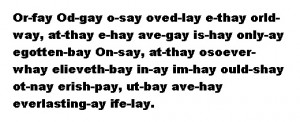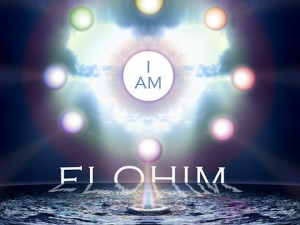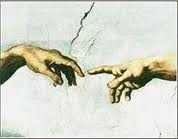Feb 11
25
No such thing as a dumb question, are you sure?
There’s no such thing as a dumb question … sez who? I grew up with a reverence for the question, “What would Jesus do?” I now think it an utterly ridiculous question … that, of course, is from a rather narrow perspective.
The title of a popular spiritual song published widely in church hymnals during the time of my childhood was, “He Lives.” The last line of which was, “You ask me how I know he lives, he lives within my heart” – this of course referencing the one whom most English speaking people refer to as Jesus the Christ.
Then, about 25 years ago, I stumbled onto Hebrews 13:8 “Jesus Christ is the same yesterday, today and forever,” which I had never seen before that rather rude awakening. I say “rude awakening” only because it raised a whole lot of questions all beginning with, if that’s true, then what about?
I just now checked several so-called “modern English” translations which all say basically the same thing with some rather tricky little variations, some of which reveal some basic understanding of the translators, such as this little gem from “The Message” (1993) – “For Jesus doesn’t change—yesterday, today, tomorrow, he’s always totally himself.”
Eugene Peterson, one of the founding pastors of Christ our King Presbyterian church in Maryland, was the translator of “The Message” – so we can say, and fairly so, that his particular translation reflects his own beliefs, born out of his life experiences which include his studies at New York Theological Seminary, church pastor, professor at Regent College and a whole list of impressive accomplishments and, perhaps worthy of mention, having been born close to the time that the body I occupy was born.
Am I implying that something is intrinsically wrong with Peterson’s translation? Not at all, as I’m not really familiar with it. Aha! Wait a minute, let me go and give it a Brad Cullen acid test that I formerly applied:
Oh my, I’m a convert! Eugene Peterson, even though his translation misses part of the former acid test, he gets some of it right. I am having a hard time believing it, I love this guy! I believe he really displays his intellectual belief system in his translation, but at least, in this passage, Peterson displays a deep, deep understanding that, in my view, is not shared by many Christians, let alone translators of “Holy writ.”
The old acid test doesn’t apply anymore because it has been replaced with my new acid test, which is to ask Dad what to do with it and, well, we’ll get to what Dad said to me in a moment, which wasn’t surprising to me, but may be to you: There are two passages in the New Testament which are easily proved to be mistranslated in the myriad English Bibles with which I am familiar; Mark 11: 22-25 is the one I just tested “The Message” against and here is the way Peterson translates it: “Jesus was matter-of-fact: Embrace this God-life. Really embrace it, and nothing will be too much for you. This mountain, for instance: Just say, ‘Go jump in the lake’—no shuffling or shilly-shallying—and it’s as good as done. That’s why I urge you to pray for absolutely everything, ranging from small to large. Include everything as you embrace this God-life, and you’ll get God’s everything. And when you assume the posture of prayer, remember that it’s not all asking. If you have anything against someone, forgive—only then will your heavenly Father be inclined to also wipe your slate clean of sins.”
I will get to what prompted this article, but first I just have to check out my new buddy, Eugene’s, “The Message” against another of the (again, former) acid tests I used to apply, that NO OTHER modern English translation passes (either) so far he’s one for one (partly), but here comes another – if it passes, I will rejoice, if not I will move on.
Nope, the second one fails, but wait a minute again …I was applying the old Brad Cullen “acid test” which is that I applied my intellectual understanding to what I considered an accurate translation of the original language and in its context. My new acid test is to ask Dad, what should I do with this? (Which is the question that prompted this article in the first place – wow!!! …Thank YOU Daddy!)
What Daddy told me was that my new buddy, Eugene, accurately translated it in the context of his own experience and training and consistent with the message for which Dad has chosen him to proclaim …and Dad reminded me of something He gave to me long ago: “What’s that to you?” (What Eugene and Dad talk about), “you come and follow me.”
So, I’m rejoicing, but I’m not going to bring up the second passage, because it doesn’t matter – and I have been instructed what to do, (follow Him, and not worry about what He said to Eugene), have I not?
Now then, I promised to get back to the issue at hand, the utter and absolute, ridiculousness of the question I once revered, which is, “What would Jesus do?”
If Jesus really is the same yesterday, today and forever, and as another passage proclaims he is in ME (and you), the “secret of the ages,” then my question to Dad is, “WHAT DO YOU WANT ME TO DO WITH (whatever) RIGHT NOW? Instead of asking the repository of all my training and experiences (the brain of this body-bag I occupy), what a man who lived 2000 years ago would do right now?
It doesn’t matter, because what Jesus was and did as a man, is historical perspective which has no bearing on anything. He lives and he lives within ME (right now) and I have become one with Jesus my elder brother, the scripturally stated, “firstborn of many.”
If Jesus is the same yesterday, today and forever, just how important is the mere 33 year stint he did as a human being? The answer to that involves a whole bunch of different religious perspectives, but here is what I am supposed to say right now to those who have the ears to hear it:
The man Jesus did not create anything and has no value to me as “God” or a part God/part man. His value to me as a human being is an example of what I can be and do as a human being. To say Jesus is God reduces his humanity to nothing. Was Jesus, the human being, unique?
The answer to that question depends upon what perspective we choose to apply; it certainly seems that John felt he was absolutely unique and probably the primary reason why John also felt compelled to refer to him as the “only begotten Son of God.”
Let’s look at some background of John so we can understand where he was “coming from:”
John was a Jew who, some scholars contend, was thoroughly steeped in the Hebrew Scriptures; he was certainly more than just a little familiar with the first chapter of Genesis and it is apparent to some scholars that the first verse of his Gospel (of John) was a direct reference to the opening, “In the beginning,” of Genesis 1:1; John was totally convinced that the messianic predictions of Isaiah and other Jewish prophets applied to Jesus.
Now then, along with the foregoing backdrop, we need to remember that John wrote his Gospel in the Greek language and was (apparently) trying to communicate what a Hebrew word in the first chapter of Genesis meant to an audience familiar with Greek, but not Hebrew.
The referenced Hebrew word (here in English characters), “Elohiym” cannot (it is literally impossible to) be translated into Greek, or for that matter, English. Here is the challenge for us who speak English two thousand years later:
The King James Version (KJV) translated “Elohiym” as “God” and almost all later English translations maintained that tradition. Elohiym is a plural Hebrew word referring to the many individual SPIRIT Beings of which Elohiym is comprised. In all the thirty-plus instances that we see “God” in the first chapter of Genesis it is mistranslated from “Elohiym.”
Here is how we can readily see that “God” is a mistranslation: “God,” to most of us, refers to that ONE and only one (singular) Supreme Being. “Elohiym” refers to the multiplicity of Spirit Beings, again, of which it consists. “Theos” (here, again, in English characters) is the Greek equivalent to the English term “God.” Therefore, both culturally and linguistically, neither term (“God” nor “Theos”), because of the singular nature of both, can legitimately be translated into “Elohiym” …it just doesn’t compute.
Now look at the Gospel of John and come to the realization that John was obviously trying to “clear away” this misunderstanding about the plurality of “Elohiym” and where Jesus fits into the mix to his Greek reading and speaking audience (as translated into English in most English translations) …if this sounds confusing let’s tune into John 1:1-3 and see something really confusing:
“In the beginning was the Word (Gr. Logos, meaning the “complete expression of”) “and the Word was with God and the Word was God.” HUH?
Okay, so far, John has just introduced a part of “God” who was “with” (ah, must be a separate being, right? No… apparently not, since he cleared that away with WAS God, in the beginning. Hmmm …then John continues on with explaining that this “Word” (again, Gr. Logos) was the one who actually created everything – and further on said that this “Word” who created everything, “at the beginning,” also became the man many of us tend to call Jesus the Christ.
What just came to me as a complete sidebar, and I suppose everyone else is already there is, the educational argument between those who advocate Creationism may explain how it began …but why does it have to eliminate evolution? …sounds to me as if BOTH can be true.
Back at the ranch, John then tells us how we can become one with Jesus’ Dad who has become our Dad and Whom is the creative SPIRIT-PARENT, an integral part of that collection of beings which the Hebrew language of Genesis, chapter one, refers to as “Elohiym” (here in English characters), the multiplicity of Spirit Beings and Whom I collectively refer to as the “SOURCE.”
At the beginning was this SPIRIT-PARENT part of the SOURCE who spoke everything into existence and who later became the man we call Jesus Christ.
Get this: John, the self-proclaimed most favorite disciple of Jesus wrote in the first chapter of the Gospel under his name that anybody who receives the basics of the foregoing two paragraphs (my paraphrase of what John wrote in the original language) will also have the power and authority to become (as Jesus, “the firstborn of many”) a “son” of the SPIRIT-PARENT.
I realize the foregoing seems convoluted, because I’m trying to cram a bunch of truth into one relatively brief article.
In Freedom,
Brad





